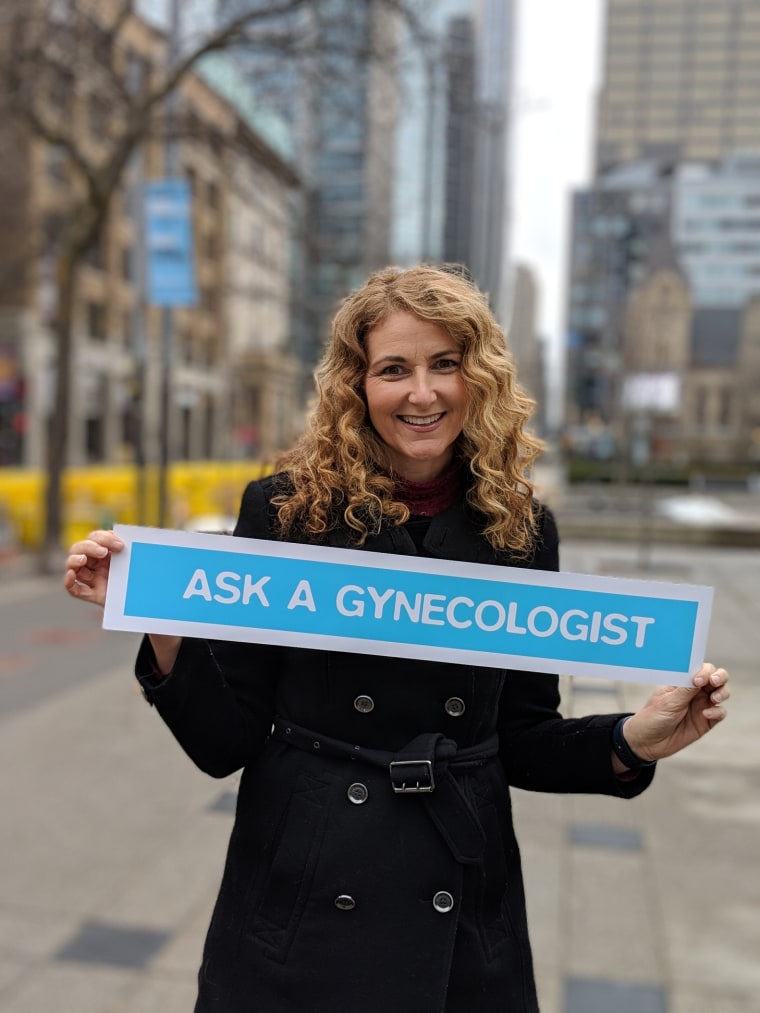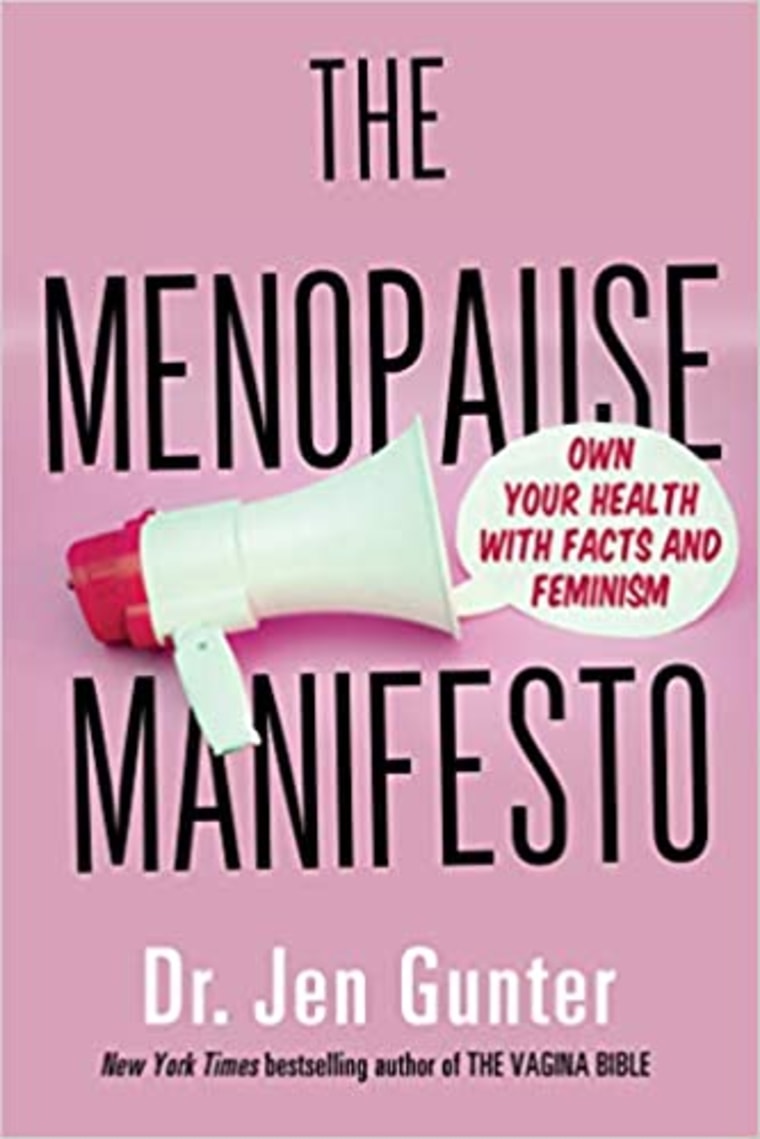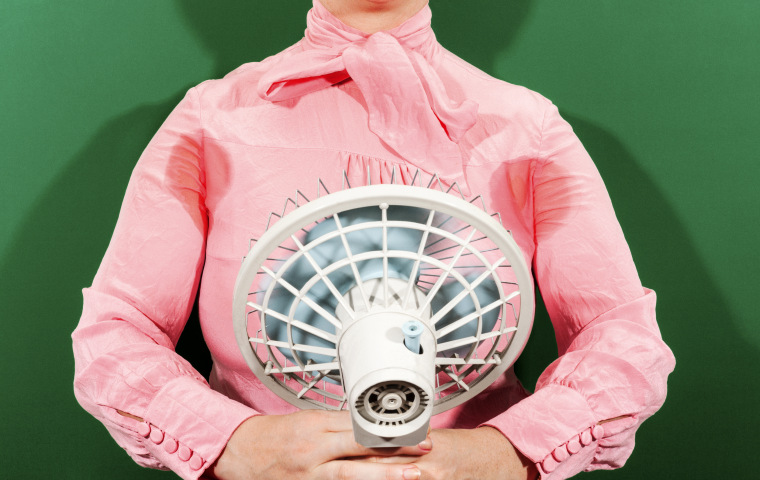Throughout her career, Dr. Jennifer Gunter has been combatting misinformation about women’s health. And one of the most challenging topics is menopause.
“The culture of silence about menopause is just unreal,” Dr. Gunter, an OB/GYN, told Know Your Value. “We have so little discourse about it and so little accurate information is out there … Some doctors have a 15-minute visit with patients. How can they possibly address all of menopause? A conversation about hot flashes alone is probably 15 minutes or more.”
Because of this dearth of education around menopause, myths are easily propagated, said Dr. Gunter. In her upcoming book “Menopause Manifesto: Own Your Health with Facts and Feminism,” Dr. Gunter empowers women to take control of their menopausal journeys—armed with scientific information.

“Menopause Manifesto,” which comes out May 25, is a follow-up to her 2019 book “The Vagina Bible: Separating Myth from Medicine,” in which she dispelled incorrect ideas about vaginal health.
“The problem with sex education in this country is that we don’t educate people about their own biology,” said Dr. Gunter. “We should be learning about menopause at a young age. Young kids aged 10 or 11 might be able to talk about some puberty basics — but most people know even less about menopause, and in some ways, they’re similar.”
Dr. Gunter outlined some common myths around menopause.
Myth #1: It’s a sign of failure or irrelevance.
Menopause is often framed as ovarian failure or as a “pre-death” stage, said Dr. Gunter.
“Our patriarchal society doesn’t think we have value after our reproductive potential,” she said. “But, no one ever phrases erectile dysfunction as penile death.”
Dr. Gunter said there is strong evidence that menopause serves an evolutionary function. The “grandmother hypothesis” theorizes that women become infertile later in life so they have the time and energy to help their daughters care for their young children. The theory also stipulates that women live longer than men for this reason.
“Ovaries aren’t tired or dried up. It’s a planned end of reproduction, and it’s part of societal functioning,” said Dr. Gunter. “You can’t really help your daughter who is having a baby if you’re looking after your own 6-month-old.”
Myth #2: Symptoms start after your last period.
Technically, the phase of menopause starts during and after the last period. But symptoms can begin years earlier, said Dr. Gunter. Women who adhere strictly to the technical definition may not advocate for themselves when they go to the doctor, she said.
“It’s better for people to think of menopause as a phase of life. What matters for practical purposes is when these symptoms start,” said Dr. Gunter. “A common thing that I see is that women are told ‘oh, you can’t be having hot flashes due to menopause, because you’re still getting your period.’ But, a lot of the hormonal changes are already starting.”
Myth #3: Miracle foods can alleviate symptoms.
Dr. Gunter often sees articles and opinions claiming that certain superfoods can alleviate menopausal symptoms. Some of these foods—such as soy, whole grains and nuts—are high in the compound phytoestrogens, which can act like a weak estrogen in the body, but they cannot replace estrogen as some articles state, according to Dr. Gunter.
The best way to alleviate menopausal symptoms is to maintain a balanced diet, exercise and not smoke.
“I know that none of that is very sexy,” said Dr. Gunter. “But it’s the cornerstone of a healthy menopause.”
Dr. Gunter recommended 25 grams for fiber a day, two servings of fatty fish per week if possible, and 1,200 mg of calcium a day.
Myth #4. Hormone therapy is always the answer/never the answer.
Menopausal women usually hear one of two opinions when it comes to hormone therapy: that it’s extremely dangerous, or that it’s the only fix-all treatment, according to Dr. Gunter. Neither is exactly correct.
Estrogen therapy is often used to alleviate menopause symptoms and prevent bone loss. But it’s not the only option available, and it’s not a cure-all, according to Gunter.
“Estrogen isn’t going to fix your diet,” said Dr. Gunter. “Other prescription medications can help with certain symptoms, like sleep. Some people can’t take hormones.”
Don’t use any over-the-counter or compounded hormones, said Dr. Gunter. But safe hormone therapy can come with low risks, as long as a woman’s doctor deems it safe.

Myth #5. It’s normal for sex to be painful.
Menopause causes a loss of estrogen, which may lead to a loss of vaginal moisture. If this is leading to pain during sex, women shouldn’t just put up with it, according to Dr. Gunter.
“A lot of people just suck it up and say ‘that’s what happens during menopause,’” said Dr. Gunter. “There are over-the-counter moisturizers, prescription therapies, hormones—there are a lot of ways to deal with discomfort during sex.”
Myth #6. All symptoms can be blamed on menopause.
Dr. Gunter said she often sees women attributing a lot of symptoms to menopause when they should be seeking other forms of medical attention. Overactive bladder may not be caused by menopause, for example, and bleeding after the final menstrual period may be a sign of cancer, she said.
“People blame menopause for everything,” said Gunter. “If you’re struggling with symptoms, even if it’s hot flashes, night sweats, memory concerns, any symptoms at all, talk with your doctor to make sure it’s not something else.”
